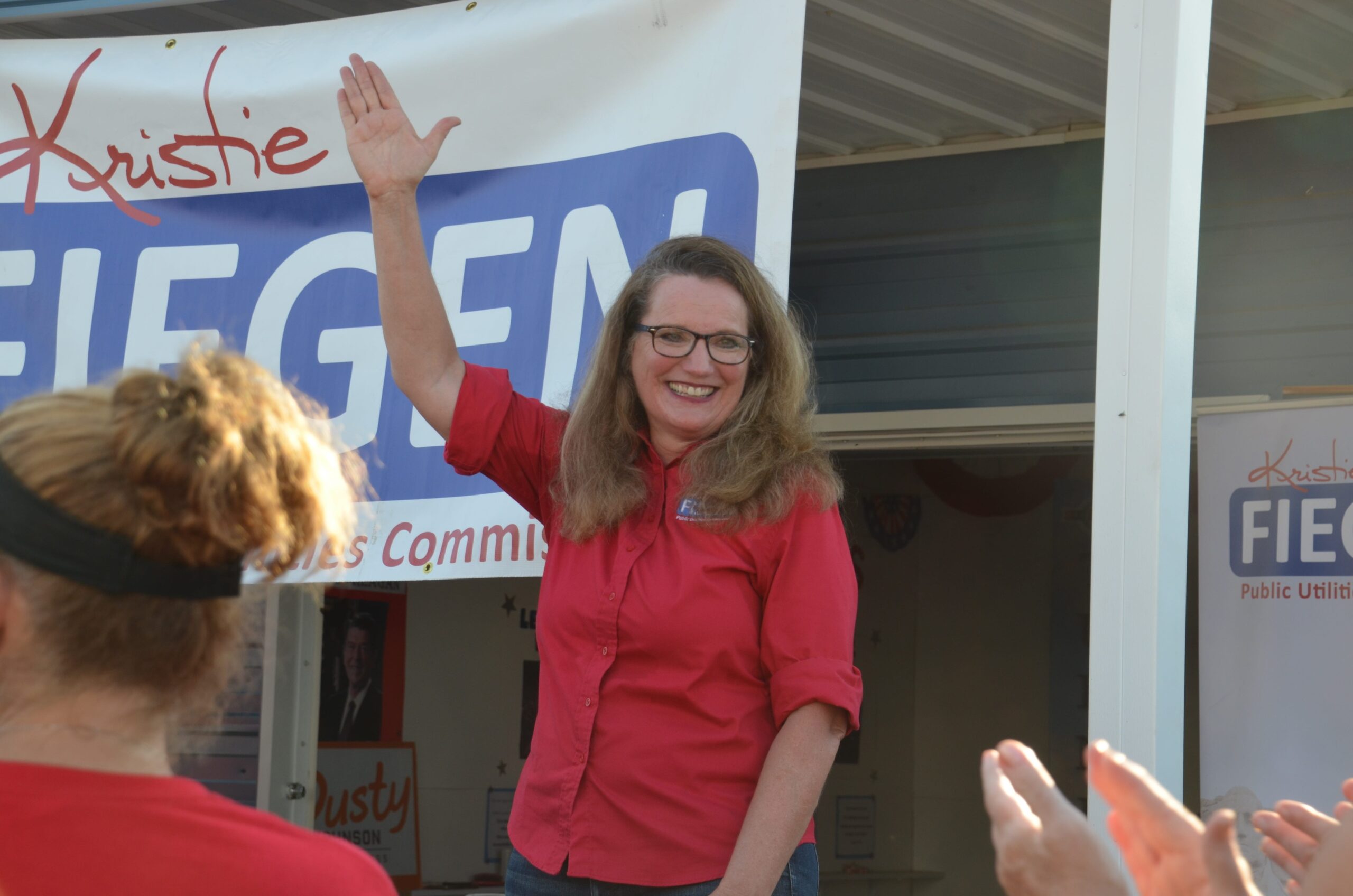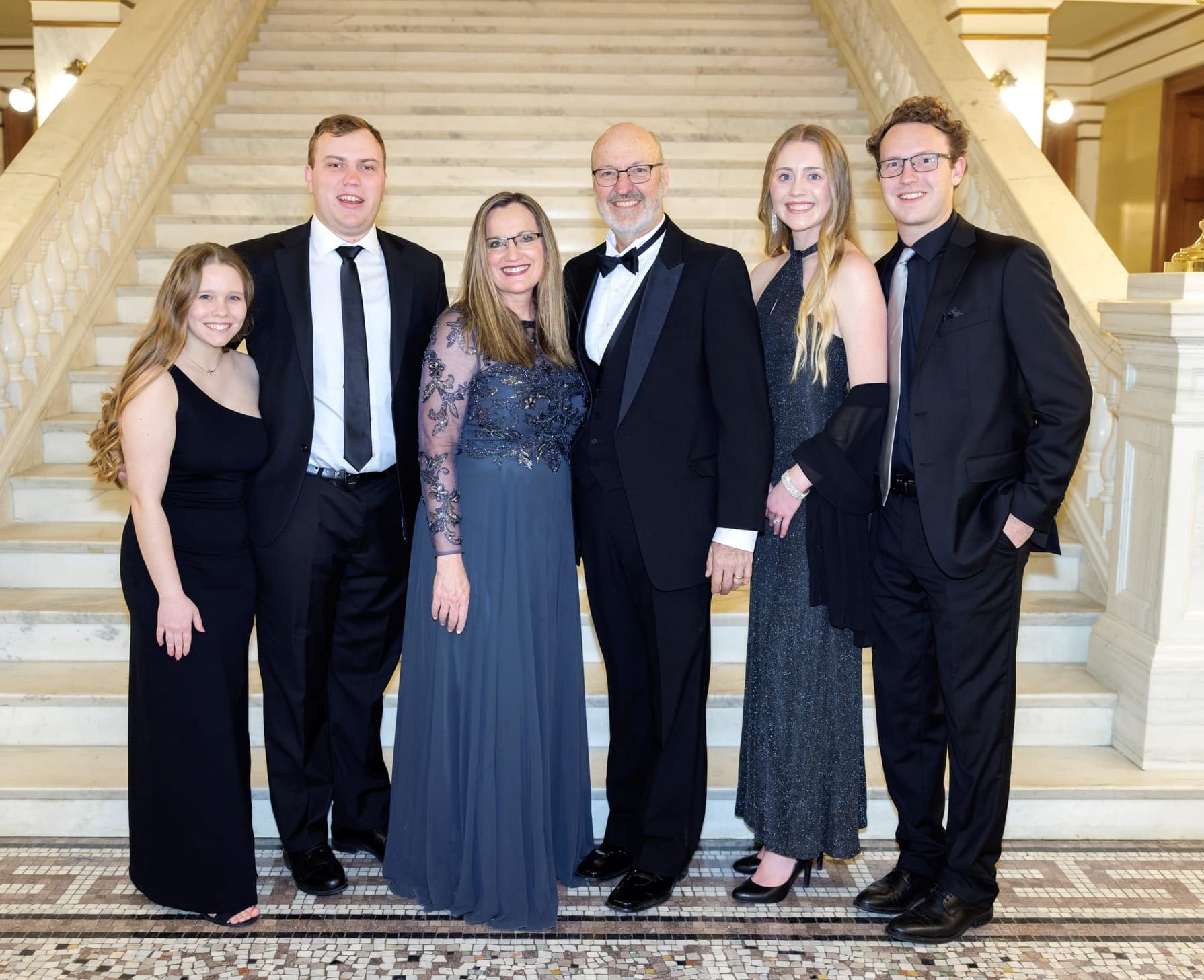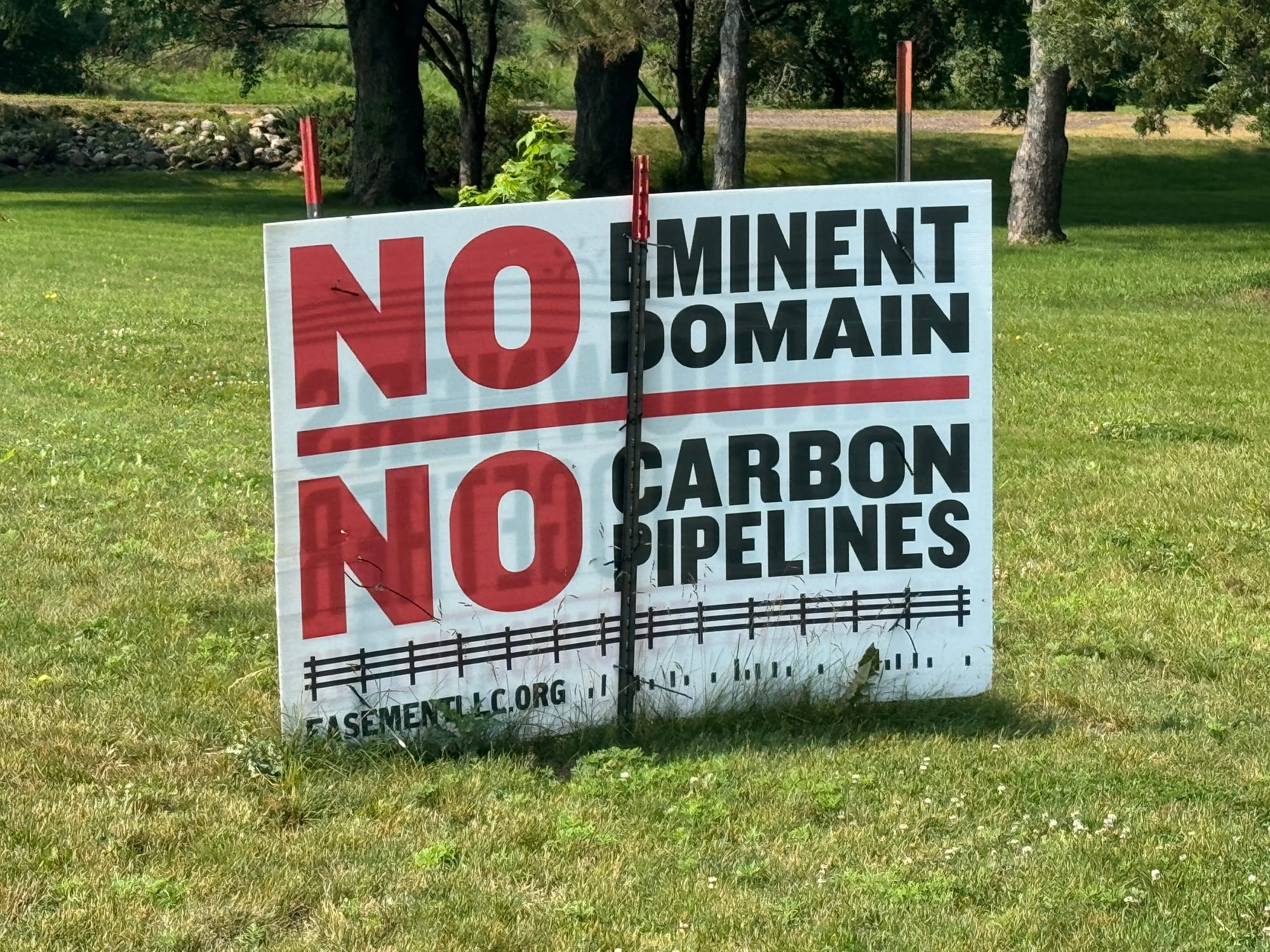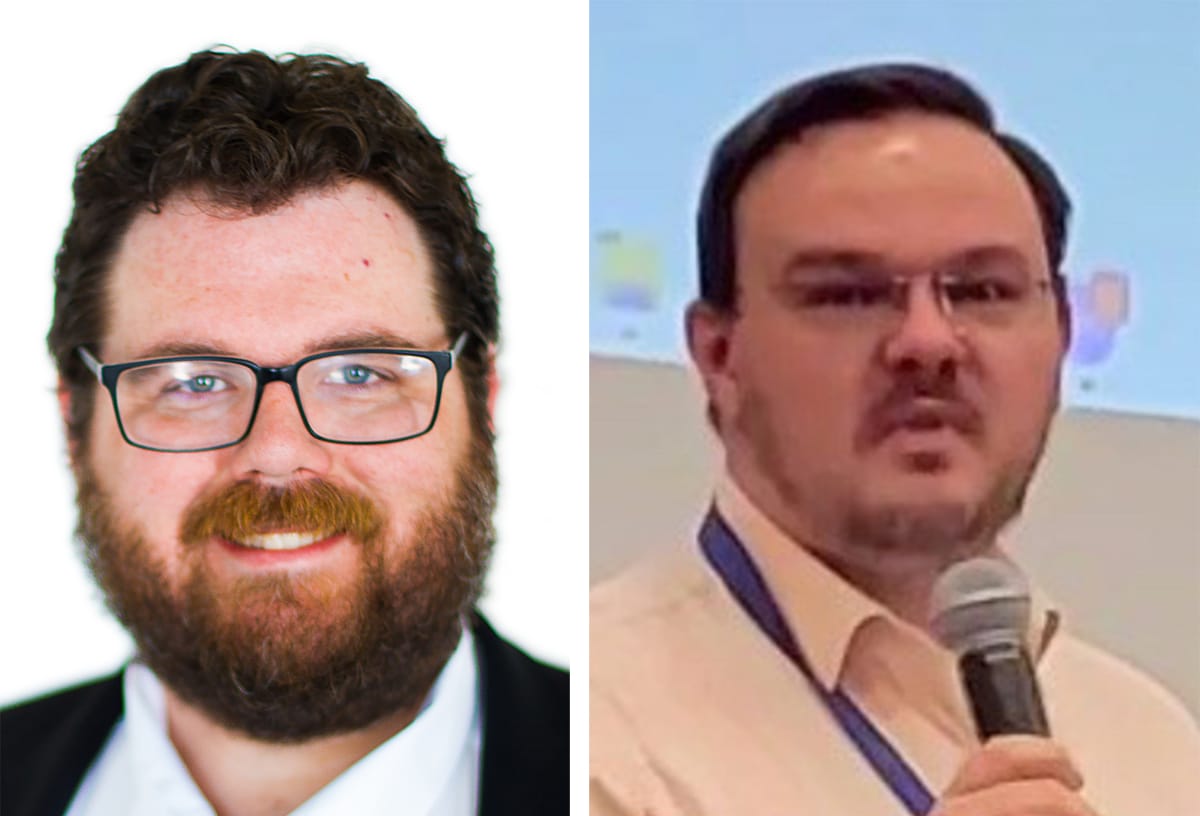
Stu Whiney, South Dakota News Watch
It’s safe to say that the past year has been among the most challenging of Kristie Fiegen’s career.
The chairperson of the South Dakota Public Utilities Commission has immersed herself in energy policy as concerns mount over the reliability of electricity transmission and limitations with the national power grid.
Fiegen has also absorbed information and public comment on carbon pipelines as Summit Carbon Solutions pursues regulatory approval to run its project through eastern South Dakota in the interest of ethanol advancement.
At the same time, the 62-year-old Republican has campaigned for another term on the three-member PUC, which regulates electric, natural gas and telephone utilities and issues permits for energy projects and pipelines.
It was during a campaign swing in the Black Hills on Sept. 27 that Fiegen and her family faced their most formidable challenge yet. She was at her brother’s cabin near Hermosa, about 20 miles south of Rapid City, when her husband, Tim, started feeling ill as they were getting ready for a political event.
“I was changing to go to a banquet,” Fiegen told News Watch. “Tim was getting ready at the same time, and he said to me, ‘I’m going to sit on the bed, I don’t feel well.’ I knew something was wrong at that point because it was ‘go time’ and he’s my campaign driver. He loves going to these events.”
Knowing Tim had survived a heart attack in 2017 and had a stent in one of his arteries, she didn’t take any chances.
“I decided to call 911 while he was still conscious,” she said. “I said that my husband was having a heart attack, and the dispatcher asked, ‘Is he conscious?’ I went back and looked again, and he was not. That’s when he went into cardiac arrest. His heart stopped and he stopped breathing, and I started CPR.”
Near-tragedy on the campaign trail
What happened next was a whirlwind of emergency response, fortuitous timing and plentiful prayers. A crew of firefighters was stationed a half-mile away from the cabin and arrived in four minutes to take over CPR and use a defibrillator.
Fiegen called her sons, Alex and Jackson, who quickly began the 350-mile drive with their wives from southeastern South Dakota to the Black Hills.
“They told me later they were driving out to Rapid City to support their mom,” Fiegen said. “After hearing my voice on the phone, they didn’t think they would get to see their dad.”

EMTs arrived from Keystone and worked to resuscitate Tim in a small bedroom of the cabin, shocking his heart five times. Kristie paced outside the room for more than an hour, calling for prayers from friends and family, not knowing if her husband was dead or alive.
When they got Tim breathing and sent him in a helicopter to Monument Health Rapid City Hospital, good news started rolling in. There were no new blockages, just scar tissue from his former stent. His brain activity registered as normal after a period without oxygen, and he showed signs of his trademark sense of humor.
At one point after waking up in the hospital, he drew a smile from his wife by asking, “What kind of place is this? Where is my underwear?”
Tim, a retired associate professor of education at Dakota State University in Madison, is recovering at home in Sioux Falls, surrounded by family and encouraged by messages of support from across the state.
Priority is ‘keeping the lights on’
With her husband on the mend, Kristie Fiegen’s PUC campaign, which started 20 months ago and covered more than 50,000 statewide miles, will look different down the stretch as volunteers and family handle some of the legwork.
She plans to oversee his recovery while running on her record against Libertarian Party candidate Gideon Oakes and Democrat Forrest Wilson.
Fiegen, a Chancellor native who served in the South Dakota House of Representatives from 1994 to 2001, was appointed to the PUC by former Gov. Dennis Daugaard in 2011 and was elected to new terms in 2012 and 2018.

She holds leadership roles in the Southwest Power Pool, a nonprofit organization that manages electric transmission for parts of 14 states, including South Dakota.
Cooperation between regional transmission organizations was critical during Winter Storm Gerri, which brought brutally cold air and blizzard conditions to much of the Midwest in January.
“During that storm we got 7,000 megawatts (of electricity) from the East to help us keep the lights on,” Fiegen told News Watch. “If we hadn’t gotten that, we would have shut off lights in January during the first week of (legislative) session.”
Similar problems emerged during a 2021 winter storm that rocked Texas and shut down power.
“Since those events, we’ve devoted a lot of time to resource adequacy,” said Fiegen, who serves alongside fellow Republicans Chris Nelson and Gary Hanson on the PUC. “We believe in clean energy, but our No. 1 goal as commissioners in South Dakota is to have reliable and cost-effective electricity for our customers.”

Pipeline issue still looms over PUC
The pipeline issue has also contributed to Fiegen’s busy schedule.
Summit Carbon Solutions is pushing for a $5.5 billion, 2,500-mile pipeline that would carry liquified carbon dioxide gas from more than 50 ethanol plants in Iowa, Minnesota, Nebraska, North Dakota and South Dakota to be stored deep underground in North Dakota.
The South Dakota PUC voted 3-0 to deny Summit Carbon’s application in 2023 based on a staff attorney’s assessment that the project couldn’t proceed without overriding county setbacks and violating state law in the process.
Fiegen recused herself from that application process because the pipeline would cross some of her family’s land. She was replaced by state Treasurer Josh Haeder.
Asked by News Watch if she’ll recuse again if she’s re-elected and the matter comes up, Fiegen said she would review the application “and we would make a legal determination based on that information.”
Oakes calls for ‘fresh perspective’ on PUC
Oakes, the Libertarian candidate, is a small business owner in Keystone who has been elected twice to the town board in that Black Hills community.
He doesn’t see Fiegen’s experience, or that of her PUC colleagues, as an impenetrable force in this election, adding that new voices could add value to regulatory decisions.
“I believe that elected office should be a calling, not a career,” said Oakes. “Yes, experience is a valuable asset for any decision-maker. But with a collective tenure of nearly half a century between the three sitting commissioners, I say it’s time for a fresh perspective in the room.”
The 39-year-old said that he believes South Dakota can explore alternative energy sources like solar, wind, hydroelectric and nuclear power while still maintaining energy reliability.
“Part of keeping up with increasing energy demands means figuratively adding as many arrows to our quiver as possible,” Oakes said. “If elected, I will work wherever I can to remove barriers to emerging energy technologies, including those in the area of nuclear energy, where amazing breakthroughs are being made. By reducing barriers, we can allow market demand and innovation to drive energy production.”
Fiegen cited state law that limits what she can say in declining to directly address Referred Law 21, passed in 2024 as part of a legislative package known as the “Landowner Bill of Rights” to address potential carbon pipeline negotiations.
But Oakes said that he’ll be voting to strike down the law.
“As one who believes the best government is the one closest to the people, I will be voting to keep carbon pipeline siting authority with the local elected officials who live, work, shop and worship with the people their decisions directly affect,” he said.

Democrats run Wilson for PUC
The Democratic candidate for PUC is Wilson, club director for the Boys and Girls Club of Lead-Deadwood. He attended Northwest College in Wyoming and received his associate of arts degree from Chadron State College in Nebraska.
Wilson lists his policy priorities as protecting landowner rights, increasing coverage for grain sellers and securing statewide emergency services.
“South Dakotans deserve a Public Utilities Commissioner who will advocate for the everyday utility rate payer,” he said in a statement. “Right now, we don’t have that.”
Neither Oakes nor Wilson participated in a Vote South Dakota forum held Sept. 19 at Dakota Wesleyan University and televised by South Dakota Public Broadcasting. Fiegen took the stage by herself to field questions from students and journalists.
Now that a family health scare has changed the pace of her campaign, Fiegen said she remains confident in her job performance. If she does happen to win on election night, she said the events of the past year will add meaning to the moment.
“I love this state and the people in it, and I love working hard for them” she said. “The emotional part will be that, at the end of the day, they showed up for me and our family through prayers and support.”
